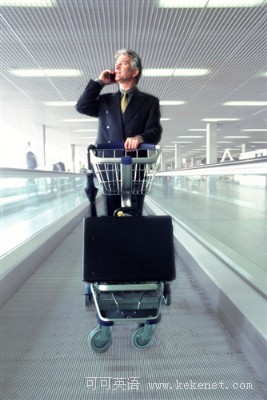
In other cases, entire companies assume a no-sleep culture. In James B. Stewart's 2005 book 'DisneyWar,' Disney studio chief Jeffrey Katzenberg was said to sleep only a few hours every night, reporting to his office by 5 a.m. He sometimes scheduled major meetings for 7 a.m. on Sunday, Mr. Stewart reported. Not surprisingly, Mr. Katzenberg insisted that all the meeting rooms be stocked with Diet Coke.
在其他案例中,整個公司界都在鼓吹不睡覺文化。作家詹姆斯•B•斯圖爾特(James B. Stewart)在2005年出版的《迪斯尼戰爭》(DisneyWar)中寫道,迪士尼制片公司掌門人杰弗瑞•卡森伯格(Jeffrey Katzenberg)每天就睡兩三個小時,早上5點就現身辦公室了。斯圖爾特說卡森伯格有時候會在周日早7點安排開大會。卡森伯格堅持將所有的會議室都放上健怡可樂,這一點也就不足為奇了。
People now sleep about 20% less than they did a century ago, the nonprofit National Sleep Foundation estimates. But as I have written, most people need seven to nine hours of sleep. Without it, we snack or drink caffeine or exercise to compensate. And we get sleepy. The foundation's 2008 poll of 1,000 Americans found 36% are drowsy or fall asleep when they are driving; 29% become very sleepy at work, and 20% have lost interest in sex because they are just too tired. Researchers blamed part of the problem on overlong work hours.
非營利機構美國國家睡眠基金會(National Sleep Foundation)估算,人們現在的睡眠時間比100年前少了約20%。不過,就像我曾經寫過的那樣,大多數人每天需要睡七到九個小時。如果睡眠不足,我們通過吃零食、喝咖啡因飲料或運動來強打精神。但我們還是會昏昏欲睡。該基金會2008年針對1000名美國人的調查發現,36%的人在開車時犯困或睡著,29%的人在上班時瞌睡得厲害,還有20%的人會因為太累而變得“性趣”全無。研究人員認為超時工作是造成人們睡眠不足的原因之一。
Readers, are you one of these high-energy, no-sleep jugglers? Can some people actually function this way indefinitely, leaving the rest of us lagging behind the evolutionary curve?
各位讀者,你也是這種精力充沛的不睡覺超人嗎?這種人是否能夠永遠這么幾乎不停工地運轉,將我們這些凡夫俗子在進化進程中遠遠甩在身后?


















